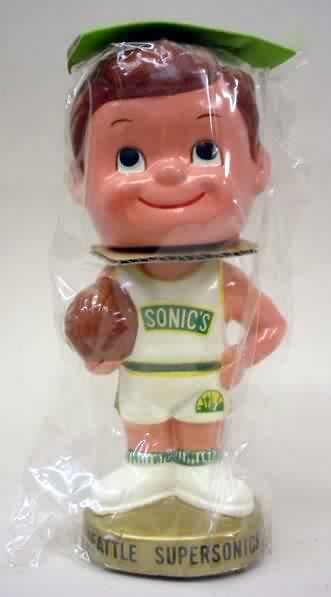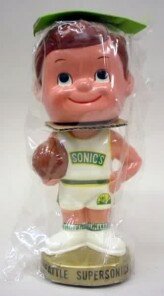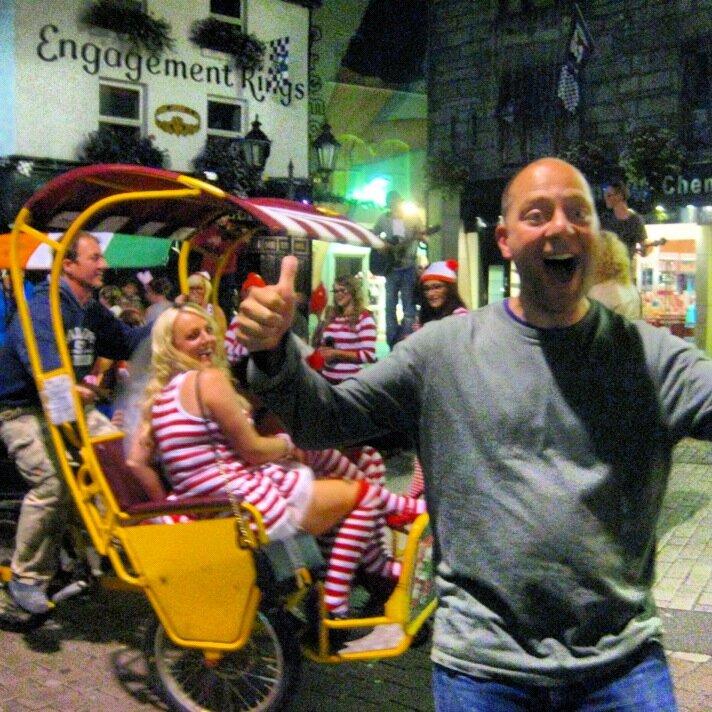The city officials and NBA-owner-wannabes of Seattle and Sacramento presented the merits of their respective fan bases and arena deals to league owners Wednesday in New York City, and what have we learned? Nothing. In fact, we actually know less.
Here were the facts heading into Wednesday:
- Chris Hansen and his group of Seattle investors have purchased the Sacramento Kings, pending NBA approval.
- Leading Sacramentonianites will be permitted to lobby NBA owners to cancel Hansen’s purchase agreement, and are touting an alternate bid for a new arena in Sacramento.
- NBA owners will vote on whether to approve Hansen as an owner—and his plan to relocate the Kings to Seattle—at their April 18-19 Board of Governors meeting.
The cities made their pitches in two two-hour blocks at the St. Regis Hotel. The principals, including NBA commissioner David Stern, then met with the media. And the only new information conveyed was that we can scratch #3 off our facts list. Stern now says that the question “Seattle or Sacramento?”—an easy decision for tourists—may be too complex for NBA owners to answer by April 19.
Stern indicated that the owners are specifically interested in the construction timelines for the new arenas that have been proposed in each city, and any potential political and regulatory obstacles. The league presumably also wants to assay the economic strength of the two markets, potential fan and corporate support, and the personalities of the future owners. Which of these factors is most important? Which presentation was best? No one who matters is saying.
Sure, you can find plenty of speculation and opinion. The Sacto group “offered the most intriguing sales pitch of the day,” writes Art Thiel of SportspressNW. “If I was confident going in, I am even more confident now,” King County Executive Dow Constantine told Bob Condotta of the Seattle Times.
Hansen and Steve Ballmer made Seattle’s presentation, with support from Mayor Mike McGinn, Constantine, and current Kings owner George Maloof, who told owners he wants the Hansen deal approved. From Hansen’s four-minute press conference, you can sketch how the Seattle group tried to differentiate their bid from the Sacramento one. “We’ve been working on this for 883 days,” Hansen told the media. (Sacramento lead bidder Vivek Ranadive got involved just 2 weeks ago.) Hansen: “Seattle is doing very well economically, we’ve got the right kind of industries growing.” (Sacramento’s major industry is the state government of California.)
But it’s all conjecture. As former St. Regis resident Ernest Hemingway once said: “Never confuse movement with action.”
The biggest question remains unanswered: If the NBA cancels Hansen’s purchase agreement, by what mechanism would the league force the current owners to sell to the Sacramento group? As I have written here before, this fact—that a purchase agreement has been signed, that the Kings are not a beef cattle up for auction—is the single strongest factor in the Seattle group’s favor. KCPQ’s Aaron Levine tried to get clarity on the issue by asking Stern if the fact that a purchase agreement has been signed pushes the needle Seattle’s way. Stern refused to answer.
So, after a hotly-anticipated day yielded nothing, we count down until…well, who knows? The Sonics’ move to Oklahoma City for the 2008-09 season was not official until July 2, 2008, when Clay Bennett’s ownership group reached agreement to buy out the final two years of the KeyArena lease. If you’re wondering how long the NBA could let this drag on, the answer would seem to be at least another three months.
My recommendation is this: Ignore all of it—yes, wipe this meandering article from your mind MIB-style—until the NBA owners announce their decision. Nothing you learn between now and then will be authoritative, and nothing you can do between now and then will be influential. Meantime, enjoy this exclusive video I obtained from highly-placed league sources showing Steve Ballmer’s part of the presentation.




